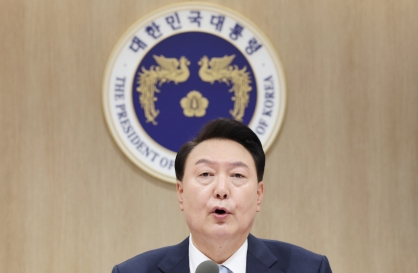On May 31 I published an op-ed together with Bandy X. Lee that ended asking: “Will we not only finally end the Korean War but peacefully reconfigure international relations in the greater Pacific region?” We added (with slight updating): “The current situation in Asia is a major threat to world peace, not just a matter involving the US. Therefore, an expanded summit now needs to be arranged and should include China, South Korea and the United Nations and maybe Japan and Russia as well.”
The day after that column was published, President Trump declared while meeting Gen. Kim Yong-chol at the White House: “We’re 6,000 miles away. That’s their neighborhood; it’s not our neighborhood,” indicating that the Asian neighboring countries should bear the responsibility and costs for economically assisting North Korea.
Now of course we are all aware how changeable and unstable Trump is. Even so, with this unexpected statement and approach Trump has opened the doors to what really does need to be done. There’s been so much attention to what North Korea is being severely pressured to do and severely threatened will happen to it if it does not. Now with the Singapore summit looming, this quick summary of what the US needs to accept and do is important to have in mind:
1) It’s long overdue to fully end World War II in the Pacific. This means a formal ending to the Korean War from which follows major Korean as well as regional arms de-escalation.
2) Ending the Korean War also means a major draw-down of American forces coupled to an end to military war games as the North’s denuclearization and regional economic development proceed.
3) This further means that the Asian regional neighbors need to positively integrate policies and provide the equivalent of a Marshall Plan for North Korea, which was totally destroyed before the armistice. Doing so will in itself make possible gradual reunification, which though different has happened in both Germany and Vietnam. Indeed the Chinese “One Belt, One Road” initiative could be expanded to include North Korea along with substantial assistance and investment from South Korea and Japan as well as the US.
4) This then means that the current very real, albeit undeclared, arms race underway between the US and China in the Pacific can be substantially reversed and in fact ended.
5) If all this can be achieved then the US should and can refocus considerable monies and energies away from military expenditures making possible major infrastructure and social programs expansion at home.
6) Furthermore if bold peacemaking, rather than war-mongering, can be achieved in the Pacific, it’s way overdue to apply serious international peacemaking efforts to the Middle East where the geographic, economic and ideological difficulties are even greater.
Mark Bruzonsky
Mark Bruzonsky is a political analyst and journalist in Washington with extensive experience in US foreign policy and international affairs. -- Ed.
The day after that column was published, President Trump declared while meeting Gen. Kim Yong-chol at the White House: “We’re 6,000 miles away. That’s their neighborhood; it’s not our neighborhood,” indicating that the Asian neighboring countries should bear the responsibility and costs for economically assisting North Korea.
Now of course we are all aware how changeable and unstable Trump is. Even so, with this unexpected statement and approach Trump has opened the doors to what really does need to be done. There’s been so much attention to what North Korea is being severely pressured to do and severely threatened will happen to it if it does not. Now with the Singapore summit looming, this quick summary of what the US needs to accept and do is important to have in mind:
1) It’s long overdue to fully end World War II in the Pacific. This means a formal ending to the Korean War from which follows major Korean as well as regional arms de-escalation.
2) Ending the Korean War also means a major draw-down of American forces coupled to an end to military war games as the North’s denuclearization and regional economic development proceed.
3) This further means that the Asian regional neighbors need to positively integrate policies and provide the equivalent of a Marshall Plan for North Korea, which was totally destroyed before the armistice. Doing so will in itself make possible gradual reunification, which though different has happened in both Germany and Vietnam. Indeed the Chinese “One Belt, One Road” initiative could be expanded to include North Korea along with substantial assistance and investment from South Korea and Japan as well as the US.
4) This then means that the current very real, albeit undeclared, arms race underway between the US and China in the Pacific can be substantially reversed and in fact ended.
5) If all this can be achieved then the US should and can refocus considerable monies and energies away from military expenditures making possible major infrastructure and social programs expansion at home.
6) Furthermore if bold peacemaking, rather than war-mongering, can be achieved in the Pacific, it’s way overdue to apply serious international peacemaking efforts to the Middle East where the geographic, economic and ideological difficulties are even greater.
Mark Bruzonsky
Mark Bruzonsky is a political analyst and journalist in Washington with extensive experience in US foreign policy and international affairs. -- Ed.
-
Articles by Korea Herald











![[KH Explains] How should Korea adjust its trade defenses against Chinese EVs?](http://res.heraldm.com/phpwas/restmb_idxmake.php?idx=644&simg=/content/image/2024/04/15/20240415050562_0.jpg&u=20240415144419)








